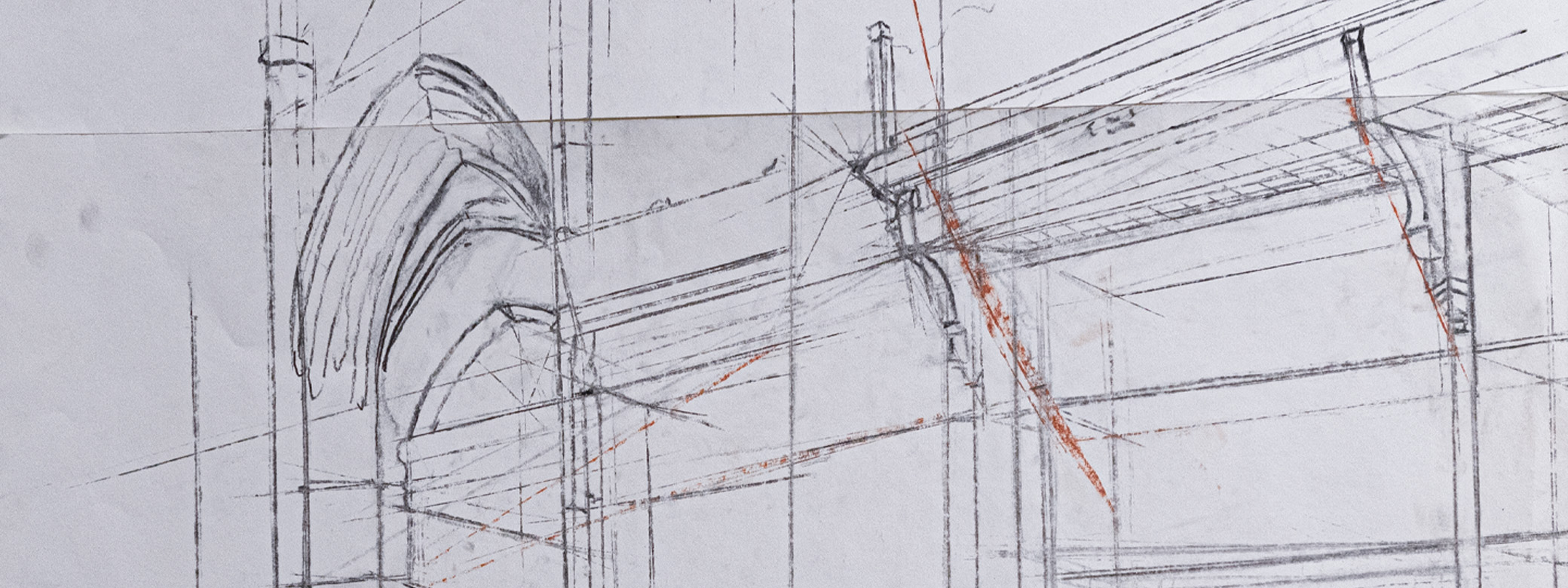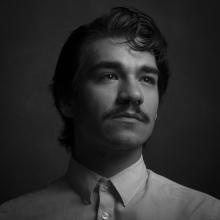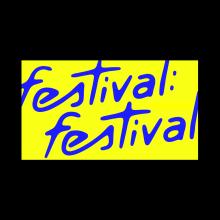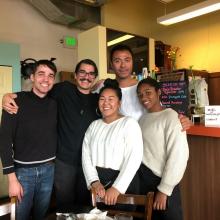Background
Juan Franco, born in Bogotá, Colombia, is a visual and performance artist, community organizer, arts educator, and currently a student in the Master of Arts in Art History practicum program (with a focus on contemporary art & curatorial studies) at the University of Washington. Franco received a BFA in Art from Cornish College of the Arts, graduating summa cum laude. They are co-founder and lead organizer of festival:festival, a free visual and performing arts festival which focuses on Seattle artists and practices that engage with intersectional structures and identities. Franco’s experience in art education stems from their work at Youth in Focus, a Seattle organization that empowers urban youth through the language of analog photography and its history. Over the past academic year, while completing their graduate coursework, Franco also interned as a curatorial assistant at the Jacob Lawrence Gallery. They will complete their degree in 2019.
Interview
This is a condensed version of an email conversation between Franco (JF) and Laura Todd (LT), one of the School's Academic Advisers.
LT: Could you share a bit about your experience working in a gallery situated in an academic institution and what sorts of challenges that presents?
JF: As an Assistant Curator at the Jacob Lawrence Gallery, my work has been learning through playing a support role for both the space and for the Director, Emily Zimmerman. In other words, I have been mostly making observations about the curatorial process in a gallery tied to an academic space. I feel I have learned so much already, and I will continue to act as Assistant Curator for the Gallery while I finish my degree. One of the challenges of the space is its situation: the Gallery needs to serve so many different audiences and purposes. It can feel like a daunting task but always an important framework to take into consideration to other spaces that may not have the same "restrictions." I put that in quotes because I think that responsible, sustainable, just, and equitable are adjectives that I would like to consider when I interact with curatorial practice. As I approach other spaces, I am always going to be asking questions about audience, history, and context. This is because the Jacob Lawrence Gallery is situated in a transaction between academia, research, the white cube, the legacy of Jacob Lawrence himself, and the greater Seattle area. In this regard, I value what Emily has exemplified in her role as the Gallery’s director, which is awareness and respect of the way space and its use contribute to or work against injustices and inequities of this world.
LT: You came into the MA practicum program from individual artistic practice: you have a background in photography, theatre, and performance. What is it like to move from experiential learning (making/doing) into research, reading, and writing, and collaborative projects such as curatorial work? How does one inform the other?
JF: I am excited about this question because it allows me to realize that my practice has not changed. It has stayed heavily grounded in research, but the tools and outputs have changed. The line between using research tools and practices to create works of art versus curatorial projects or academic writing feels barely visible or almost nonexistent. From this observation, I realize that my arts and research practices are based on my love for the archive and its potential in having a material effect on contemporary situations. More specifically, the ways in which an unexplored archive has the potential to further contextualize our present mission and values, individually and collectively. In my studio practice, I am the contemporary making an archive for the future. This involves keeping journals of notes; an online blog of writing, experiments, and sketches; and drawers, folders, and sleeves of negatives, drawings, and collages waiting for me or another person to revisit. Yet, all these things are tied to a combined synthesis of a personal narrative and the practice of research. During my time as an undergraduate at Cornish, I felt the need to have a research-based practice because I felt that I had to work harder than my peers to justify my artistic choices and outcomes. Research became a tool of equity. Now I am entering my second year of the MA in Art History program with a focus on contemporary art and curatorial practices. Conclusively, as an artist, I know that we need advocates who have the experience of both making and organizing. Contemporary art has inherited a history of white supremacy, capitalism, and colonialism. As a result, I am dedicated to creating and nourishing cultural practices through the lens of social justice, equity, and liberation politics.
LT: That is evident in your work. You are the co-founder and lead organizer of a free visual and performing arts event called festival:festival, which focuses on Seattle artists and practices that engage with intersectional structures and identities. How did this event start — was there a defining moment where it shifted from idea to reality?
JF: The root of festival:festival comes from a series of discussions with my long-time collaborator and dear friend Carl Lawrence, director of Modern Recollections, a contemporary performance company based in Seattle. As a dramaturge for the company, I talked with Carl extensively about works of performance and art, history, theory, and contemporary politics. In this process, we began to unearth ideas and questions centered around accessibility and equity of the visual and performing arts in Seattle. Our first project, titled Summer in Decline (2016), transformed a residential backyard into a site of music, installation, sculpture, and visual art for a community to come together and hold space through the change of season. The following year festival:festival was born as we began to foster relationships with cultural spaces and groups in the city to expand the reach and impact of the project. After this process, we went back to holding discussions about how to further the accessibility of the project. In 2018, we created a team of curators from the community, we were awarded a 4Culture grant, we raised over $10,000 through Kickstarter, and, most importantly, we made the project free to the public while providing financial compensation to all festival artists and staff. The festival:festival project has grown from conversations whose roots are in artistic expression and artists working together to create accessible works of art. This work is part of my role as an advocate not only of the arts but also the artists who make the work.
LT: You are headed into the final year of your graduate program. What particular resources at the UW and in the School (or absence of) have affected the direction of your work?
JF: The most valuable resource the School has offered me is the friction between coursework and practical applications. More specifically, the friction between academic research and writing and the hands-on, relationship-based practice of curating, viewing, and "historicizing" contemporary art. The process forces a dual mindset which is a site of possibilities and reimaginings of where art historical training is applied. At the Jacob Lawrence Gallery, while working with Emily, I’ve found a place that feels aligned with my values. Fortunately, I’ve been able to acquire institutional and financial support through employment at the UW’s Q Center. The distribution of resources is a theme of importance to me, and I would like to acknowledge that there is always more work to do to make the world just a little more equitable and accessible.
LT: What are you throwing away, and what will you keep, as you continue through your graduate studies?
JF: I am throwing away the idea that I should never ask for help. I am keeping and nourishing my culture and identities, to exist unapologetically.



